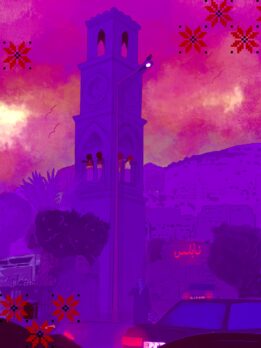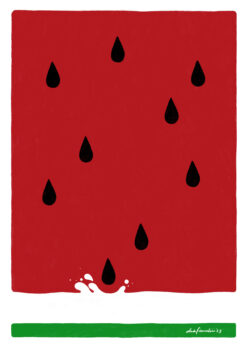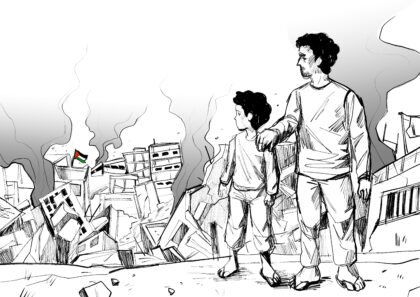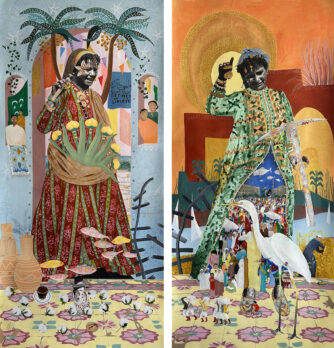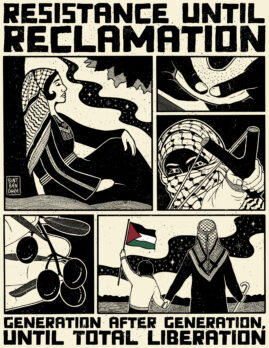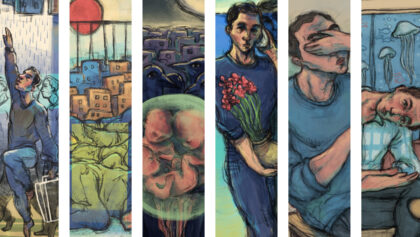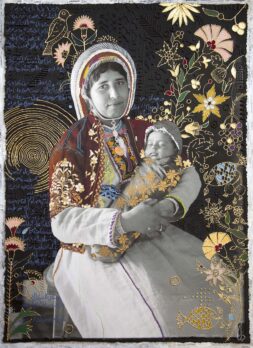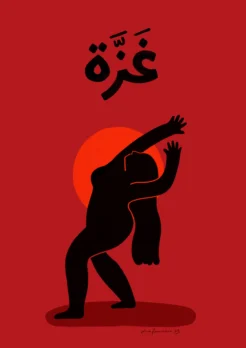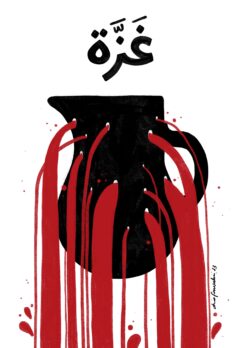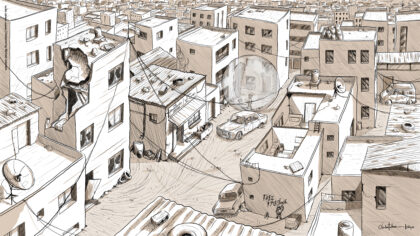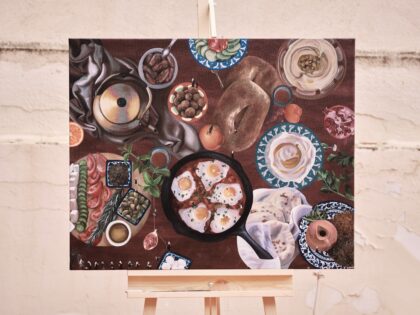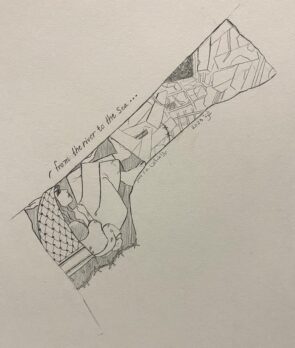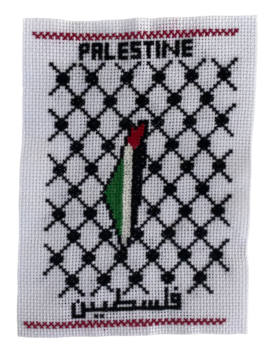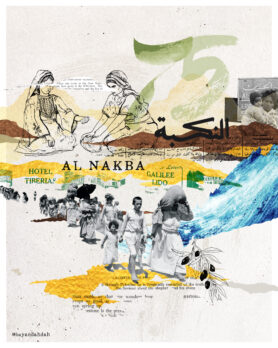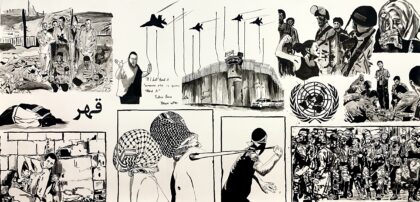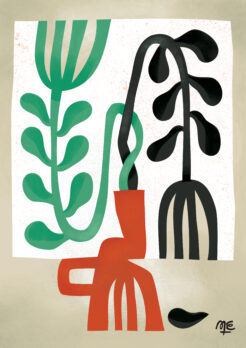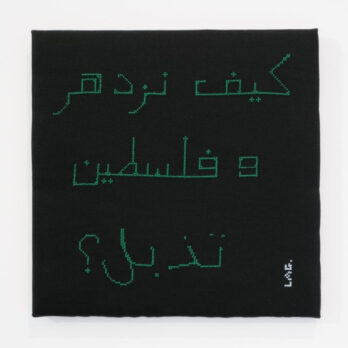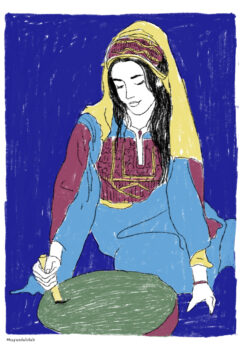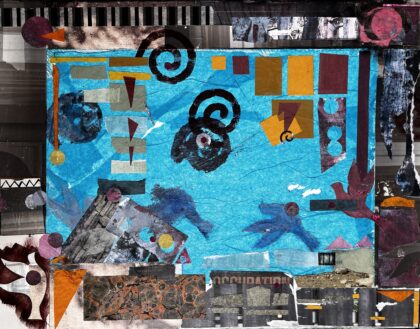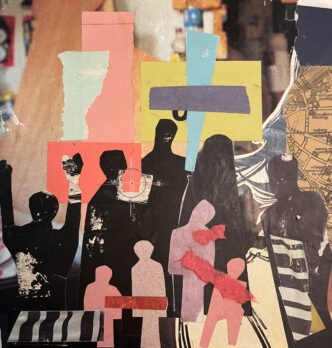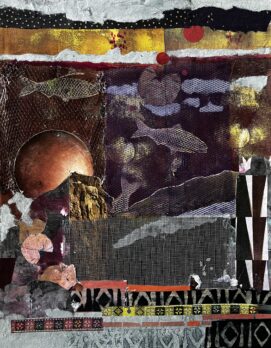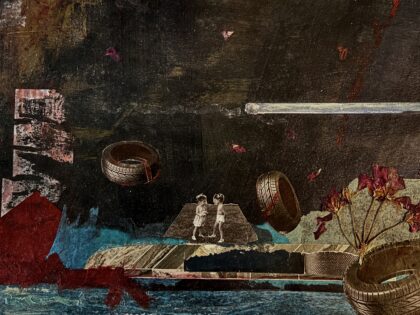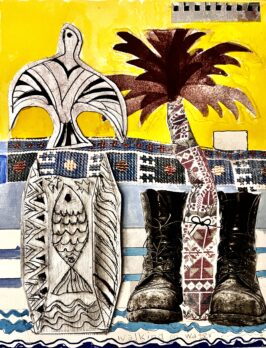
Artist Statement
I’m a 24-year-old Palestinian artist who was born and raised in the Tuffah district of Gaza City, but I’ve been living in the US for a few years now. My father felt the need to leave Gaza due to the constant attacks and massacres that have been carried out over the past decades. It was only recently that we were allowed to visit regularly over the summers, even though the humiliation that we experienced at the borders stung. As harsh as the conditions were, the people of Gaza always knew how to hope and to create life from the rubble and the dust. We never expected that our visit in July of 2023 would be the last time we would see so many family members and friends, the last time we would see our city – our home – as it once was.
On October 15, my father and I woke up to the news that 25 members of our family were killed by a single Israeli air strike: my uncle Mahmoud Darwesh Ghabayen and his entire family, my aunt Maryam Darwesh Ghabayen and her entire family, my great aunt Faiza Ibrahim Ghabayen and her family, including many of her grandchildren.
In the north, the attacks were worse than in any previous war so they relocated to the south, to what the occupying forces said was “the safe zone.” They found a skeleton of a house with no walls to stay in, but they could not sleep. It was too crowded and too cold; the kids were crying and screaming all night because they could feel the vibrations from nearby bombings in their bones. My uncle Mahmoud told my mom that the night had been hard on everyone, but he planned to look for plastic wrap to hang over the frame in place of walls so they could try to keep warm. He thought that a nearby school might have food to spare for the family. The next afternoon, my uncle Mustafa received a call. He rushed to the skeleton house along with the civil defense team and members of the community to find that it and a line of houses around it were now just a pile of concrete blocks and debris, a mass of gray destruction. They tried to dig the family out by hand. It haunts me to know that at first some screams echoed from within the rubble, and then everything went silent. Mustafa said couldn’t recognize his own brother; the faces he had looked at his whole life were wiped of all features.
There was no room in the freezers at the morgue, so they were laid out on the street in rows of body bags. The following morning they were buried in a mass grave. There was no time to mourn. No time for the dead or the living.
During my last visit to Gaza, everyone asked me if I was still drawing and painting, especially my uncle Mahmoud. He was the person who gave me my childhood in Gaza. Without him, I wouldn’t be the person that I am today. I wouldn’t laugh the way I laugh. I wouldn’t find humor and witty jokes in everything. I would not make art without him. I was too ashamed to tell him that the trauma of war sometimes was too much for me, that I had hoped art would give me a voice but I felt unheard.
I hadn’t painted in a while, but I am now, using it to process my grief, my loss. I do it to continue his legacy and to share my family’s story. This is for them.
